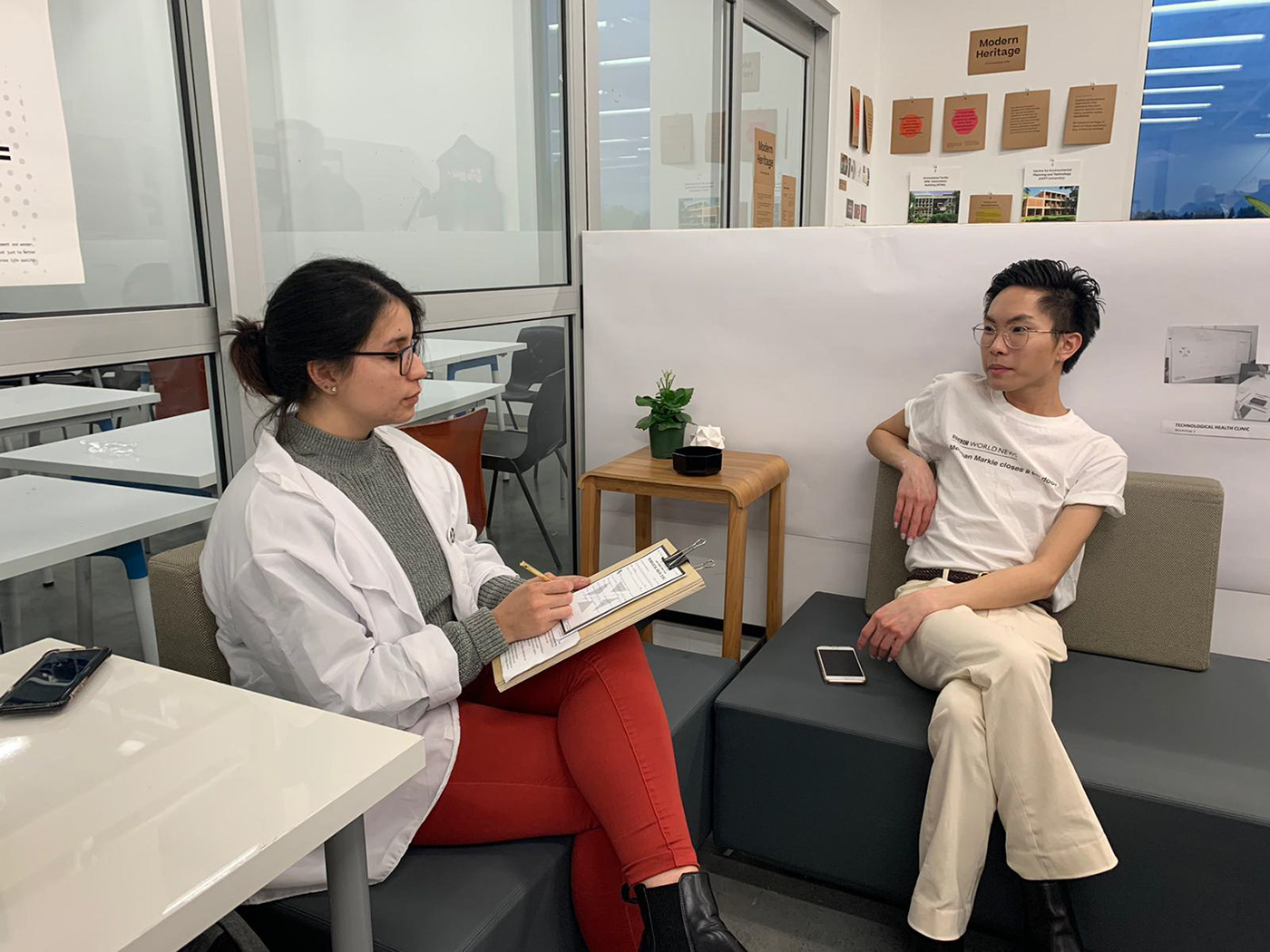TECHNOLOGICAL HEALTH CLINIC
Master's Grad Project
Design as Research
The project seeks to develop techno-social literacies around our relationships with technology, the ways of being it co-constructs, and the behaviours it affords. Such literacy, as argued for by technology critic James Bridle, is seen as a necessary first step toward addressing a range of contemporary health conditions which are increasingly linked to our use of technology and immersion in media; it connects us to issues such as computational thinking (Bridle, 2019, pg. 4), novelty addiction, convenience culture, sedentary lifestyles, and FOMO, to name a few. By critically looking at how we relate with technology, not as the source but rather the output of fundamental human ethos, the work seeks to reframe issues with technology as social rather than technical. As a result, a generative and ongoing process of restructuring practice and unveiling action turned my interest in empathy, un-wellness, care, and agency into the concept of technological health as a propositional, exploratory design research approach. To expose the shift in meaning, culture, and value that our current relationship with our devices appears to highlight, my Research looks at intervention structures that could aid in reframing and reimagining our relationship with technology. A Technological Health Clinic is proposed as a means of Research into such relationships, venturing with lifestyle experiments that question the ways we act, resist, and behave, to open up possibilities for restructured agency and self understanding through the increased perception of our techno-mutualism.





ECHO: Relational Surveillance & Silver Fruit
1. A collaborative speculative design project, which critically explored design through the lens of Intersectional, Feminist, and Decolonial perspectives. It took an everyday device (smartphone) and redesigned it around a new value, not significantly present in a smart phone; reframing the discussions we have about its use, the implications of its becoming, and the possibilities of building a different world around it, iIt spoke to how technology shapes our experiences, seeing ourselves in relation to those around us, seeking agency, and how individual reflection can integrate us back with the world.
2. Through the use design fictions to engage publics in a story of unacknowledged value, disposability, and our anthropocentric attitude towards the technologies of our time. The outcome developed played with the idea of archaeological futures as a means to re-see the material history of everyday rapidly obsolescent consumer electronics from a perspective of ‘deep geologic time’.
These projects, while not part of the Technological Health clinic, expanded my understanding of the sort of probes and workshops, engagement, deliverables, readings, and language that critical design employs and the ends to which it seeks to work.




EXTRAÑOS
Bachelor's Grad project
Animatic, Script writing
Ilustration

Proyecto de grado, 2014-II








